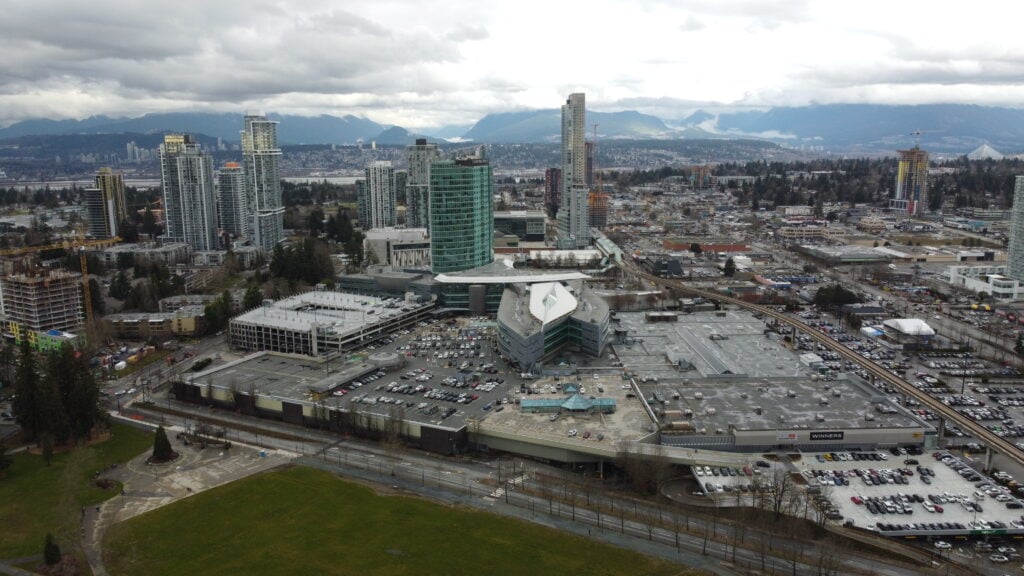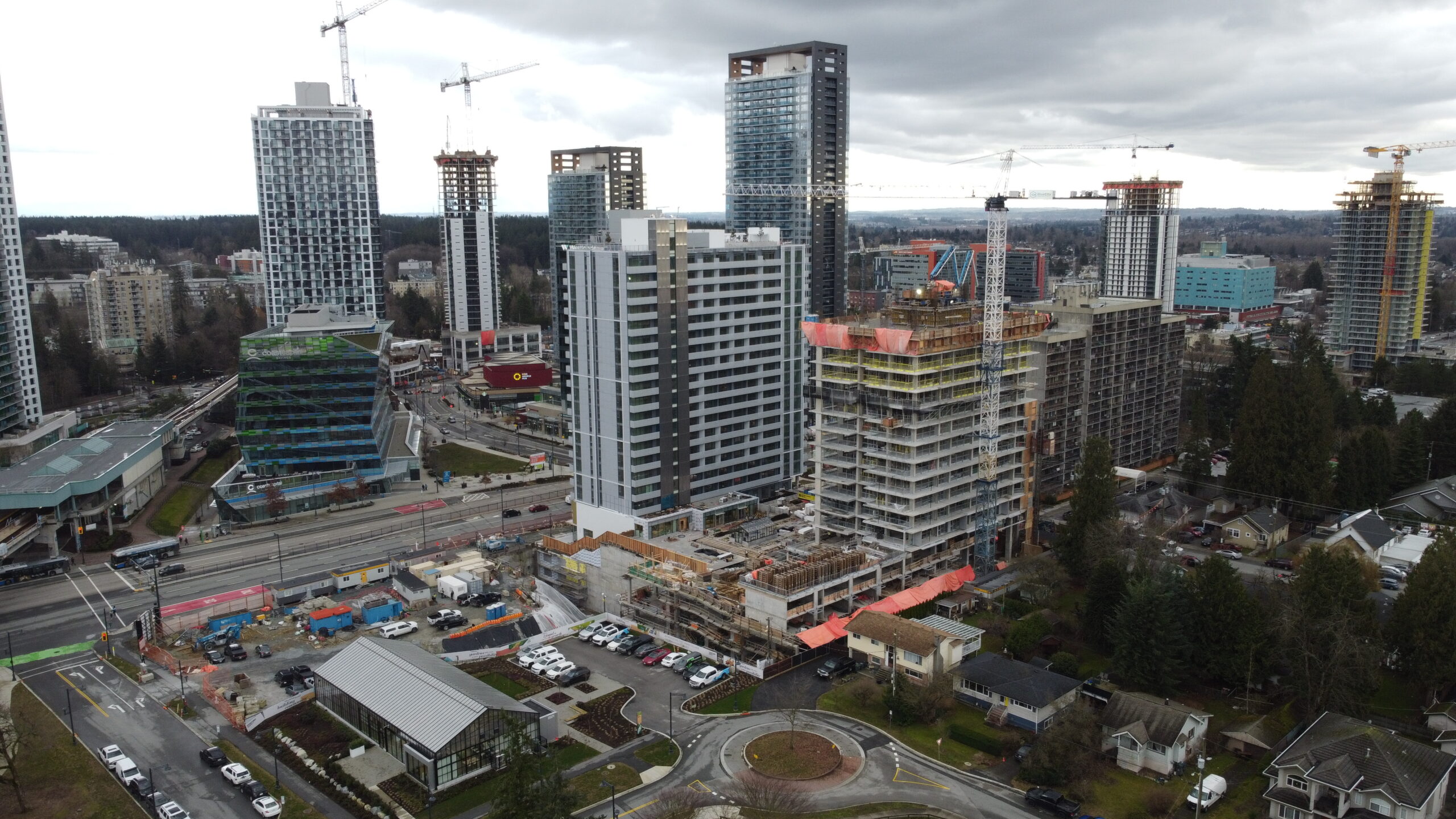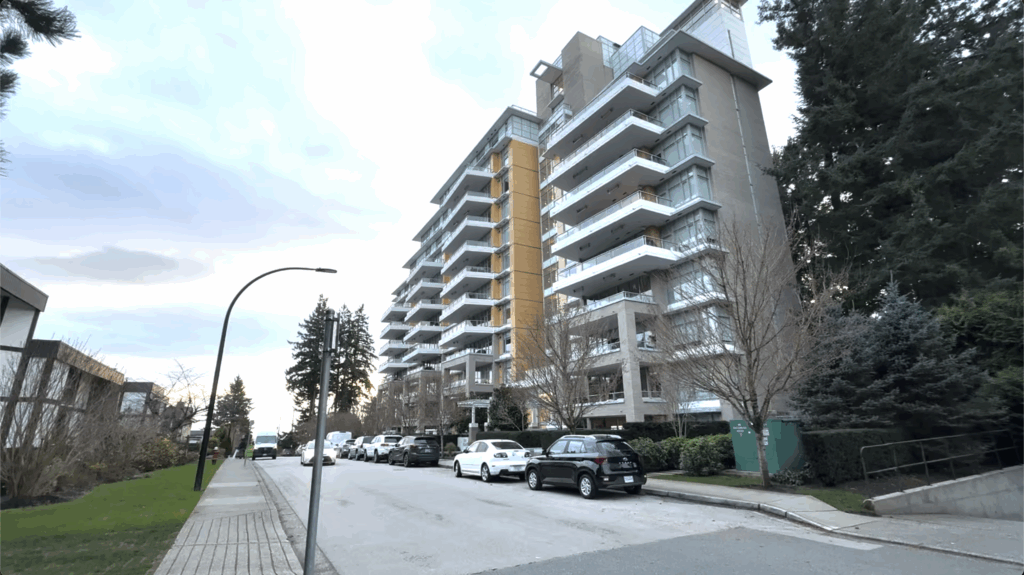How to Buy an Investment Property in Surrey

So you want to buy an investment property in Surrey, Vancouver, or anywhere in the Lower Mainland of BC?
If so, we have got you covered.
Buying an investment property can be highly beneficial. It can significantly increase your net worth and boost your retirement income. Plus, you can enjoy the perk of “mailbox money” — receiving payments directly to your doorstep. Sounds like a great deal, doesn’t it?
Thinking about investing in real estate to improve your portfolio and financial future? This blog is perfect for you.
This article is going to cover everything from A to Z all the way from:
- the general ways to invest, including what you could do investing with new construction
- the financial rewards and benefits of doing such
- whether to self manage your property or pay a professional
- the cons of getting into the investment world as well as being a landlord
- some alternatives outside of directly being a landlord that could still get you into the investment game
- how to get started
After reading this article, you’ll have all the knowledge to excel in Surrey’s real estate investing. You’ll possess a success blueprint and know precisely how to begin your journey.
If that all sounds good, let’s jump into it.

We probably don’t need to list all the fantastic reasons for entering real estate investing. You’ve heard the stories and read books about its incredible benefits and the road to financial prosperity. Now, let’s explore what you should consider.
What’s Your Strategy
What is the strategy that you plan to implement and why are you doing this in the first place? Like any major investment, you absolutely should have a strategy.
Do you intend to flip the property in a fast-rising marketplace? What about maybe holding it long term? Are you thinking of renovating a property in hopes of raising the rent so it achieves better cash flow?
For those or any real true investors out there, you could consider banking the rental income with the aim of buying another property every 3 to 5 years. This power of compounding added on top of the leverage of real estate investing can create potentially huge gains over a period of time.
3 + 1 Ways to Invest in Real Estate in Surrey
Now that you’ve got your strategy in place, let’s talk about the 3 + 1 ways of investing in real estate and the way to really frame your mindset around this.
You’ve got the very popular route which many people are choosing as today, which is Airbnb property or making it into a short term rental.
You’ve also got the cash flow alternative and you’ve got the equity alternative. In different areas of British Columbia, it’s easier to achieve different types of investing goals.
As an example, if you live in the Lower Mainland, sometimes generating cash flow initially as an investor can be difficult. This is largely due to the cost to get into owning a property. (Think of the cost of a condo in downtown Surrey, as an example)
But, in some areas of BC, creating equity in a property can be more challenging. This is beyond the cash flow generated by monthly rental income. (Think 100 Mile House, as an example. Values don’t go up nearly as fast as they do in the City Center)
Ideally, you achieve both equity growth and cash flow, but it doesn’t always work that way, especially in the beginning.
Let’s talk about the first one, though.
BC’s Short-Term Rental Landscape
Short term rentals, Airbnb, VRBO, whatever you want to call it. There’s lots of companies out there. This can be incredibly lucrative for a property owner if you can keep the property occupied more often than not. Also, your cleaning costs and fees don’t exceed your rental income.
This article today is not to get into all the short term rental pros and cons, but just to bring it to your attention.
Be cautious of restrictions on short-term rentals in BC, as they are becoming more common. Changes can happen quickly, like in Vancouver, where short-term rentals are only allowed in your primary residence.
Cash Flow
If you’re not looking at getting into the short term rental game, cash flow is your second best bet.
Cash flow occurs when your investment property’s monthly income is higher than its operating costs. You must account for expenses like:
- licenses
- insurance
- mortgage payments
- property tax
- strata fees
- utilities
Cash flow is a great place to live, though, because that means you’re getting extra money each month just for owning the asset.
Equity Growth
Equity growth is the last factor. It’s not surprising that in the Fraser Valley real estate market, my team has seen significant growth. In January 2013, the benchmark price for a single-family residence was $453,300. By January 2023, the same benchmark price has risen to $942,200.

There’s an increase of 216 % in 10 years. This is according to the home price index, Canada’s most accurate measurement of real estate price changes available.
You can compare this growth to the S&P 500, which increased by 259% in the last 10 years. Although it grew faster than the real estate market, there was no income involved in this growth.
That’s right. You’re not using other people’s money to supplement your investment having a tenant carry the expenses and eventually creating cash flow. Plus, owning real estate is a lot less volatile than owning stock.
Investing in New Construction
Now, I had mentioned 3 + 1 ways of investing in real estate, and the + 1 is something I want to caution you a little bit on, but that’s investing in new construction.
In new construction investing, you make a down payment on a project. You typically don’t have to pay the remaining balance to the developer until the property is completed. This could take 1 to 5 years, depending on the development.
A bonus as well is that you can get into some of these properties for as little as 10% down. Investing in this way has a great advantage: it lets you participate in the market’s equity growth with a small down payment. You can watch the market value increase while being connected to real estate.
Potential Cautions When Investing in Real Estate
Before diving into the world of real estate investing, it’s essential to be aware of some potential risks and challenges that may arise. Here are a few cautionary points to keep in mind when considering an investment in new construction properties.
- Pure speculation about the market continuing to increase. You don’t necessarily know that’s going to happen, and while we all believe it will, things can change.
- Ensure you are able to complete on the property. In the last 15 months, the real estate environment has experienced significant price swings both up and down. Depending on when you hit that swing in the market, you could end up being underwater versus what you paid for the property.
- Costs can arise when selling a new construction property before completion, known as assigning a property. Due to this, we stopped advising clients to buy new construction.
- Real estate investing can be a lucrative opportunity. But, it’s crucial to approach it with a clear understanding of the potential risks involved. Keep these cautionary points in mind so you can make informed decisions and navigate any challenges that may arise.

Should You Hire a Property Manager?
We’ve talked about real estate investing and how to maximize returns. Now, let’s focus on one of the most critical decisions for investors—Property Management.
The way you manage your property can significantly impact your profitability, tenant satisfaction, and overall investment experience. While some investors choose to self-manage, professional property management offers a streamlined, stress-free approach.
A reputable management company typically charges around 8% to 10% of monthly rent, but the value they provide—handling tenant placement, rent collection, maintenance coordination, and legal compliance—often outweighs the cost.

Many successful investors start by managing their first property but quickly realize the benefits of professional management as their portfolio grows. A dedicated management team ensures that your investments run efficiently while freeing up your time to focus on acquiring more properties or simply enjoying passive income without the day-to-day headaches.
Even in strata properties, such as condos or townhomes, where the strata corporation maintains common areas, a property manager can add significant value. They handle tenant relations, rental payments, and any unit-specific maintenance, ensuring your investment remains hassle-free.
For expert property management tailored to your needs, reach out to the Axford Property Management team. Their experienced professionals provide comprehensive services to protect and grow your real estate investments.
What Are the Downsides?
After deciding on management, consider some potential downsides of property investing. One major drawback is limited rental rate increases.
In British Columbia, rent increases are government-regulated. This can cause issues for landlords as costs rise due to inflation. Expenses like utilities, services, strata maintenance, and mortgage rates increase. But, allowed rent hikes may not keep pace, such as this year’s 2% limit.
The next one is how to deal with bad tenants. It’s a reality that they are absolutely out there. Not only is getting a tenant out of a rental unit extremely frustrating, difficult, and costly, it could also result in damage to your rental unit.
By regulation, the maximum damage deposit allowed to be taken on a rental is half of the month’s rent. You can additionally charge another half month’s rent for a pet damage deposit but of course, not all tenants have pets.
Suppose you receive $2,000 rent for your unit and significant damage occurs. With a $1,000 damage deposit, you may barely cover the cost of replacing one bedroom carpet, if even that.
As long as a tenant is following the rules, there’s also only two ways to evict a tenant from a property:
- The first one is for owner occupancy, meaning you or somebody who’s now purchased the unit from you wants to move in. In good faith, you’re allowed to ask the tenant to move and you have to give them a two month notice.
- The second way is through major renovations. These changes must be so significant that the property becomes unlivable. With this is a four month notice to vacate the unit or home.
You’re really going to want to familiarize yourself with the residential tenancy act, which is available on the BC Government’s website.
It’s crucial to know both your rights as a landlord and the tenant’s rights for a successful relationship.
The last con that I will bring up is the financial one.
Owning an investment property can be profitable, but it’s essential to consider the financial aspects. The biggest of which is when you sell the property, your necessity of paying a capital gain on that sale.
In Canada, selling a primary residence is not taxed. But, selling a secondary home or investment property is taxable. The tax rate is 50% of the capital gains. Capital gains occur when you sell a property for more than its purchase price. You must add 50% of the capital gains to your income for that tax year.
We know investing has many upsides but also some downsides. Instead of becoming a landlord or dealing with investment properties, consider exploring alternatives.
What Alternatives Exist?
One of the alternatives you could consider is investing in mortgages rather than properties. This keeps you tied to the real estate market in many ways but allows you to not go through the frustrations of becoming a landlord.
There’s lots of investment opportunities in financial tech companies related to real estate. You could also look at going into a pooled fund where a group of people, either privately or through a company, invest in real estate.
Similar to pooled funds, you can find real estate investment trusts (REITs). They’re securities that trade on stock markets, holding and managing various properties. REITs provide income to investors through distributions, much like corporate dividends.
Maybe some of these alternatives are not what you’re interested in, though.
Maybe you want to get completely into the investment game and you are sold on moving forward.
So What Does It Take to Get Started?
First, consult with your financial planner about investing. But, be cautious since they may not benefit from you buying an investment property and might not earn income from it.
But, as long as you’ve got one that you trust and is going to give you good advice, then great. Still, you might want to consider chatting with them.
The next one that you’re going to want to talk to is your accountant because you’re going to want to understand everything you need to know financially. It is an investment at the end of the day and you need to know the numbers inside and out.
As an investment property owner, consider the various write-offs available. These include:
- property improvements
- maintenance
- financing expenses (such as mortgage interest)
- management costs
- other potential deductions to lower your taxable income
Financially, to buy an investment property in Canada, you need to have a minimum of 20 % down payment in relation to the purchase price of the property. Not only that, but you must have the ability to qualify to borrow the money in the first place.
Find a mortgage professional with experience in investment properties. Ensure they have a good history of assisting people with their finances.
The nice thing about requiring 20% down is that you can skip mortgage insurance costs. This applies to CMHC, Sagen (formerly Genworth), or any other providers. As a result, you save some money when purchasing a property.
After setting up your mortgage with a trusted professional, find a skilled Realtor. Choose one who specializes in the area where you plan to invest. They’re going to want to know what’s going on with future growth and development of that community.
You’re also going to want somebody that understands the residential tenancy act inside out because it’s important and there’s a lot of rules. But not only that, they’re also going to have to understand cash flow opportunities for rental properties.
So There You Go. You’re All Set!
That is all the things that you really need to consider when you’re getting involved with an investment property.
If you want a copy of our cash flow calculator, just tell us. We will send it to you. Also, we will add you to our waiting list for our upcoming eBook. The eBook is about buying an investment property in British Columbia.
You are now more knowledgeable in investing in British Columbia properties. I’m curious about your thoughts. Did I overlook any important points in this article?
Is investing in a property a great idea anymore?
If you need a mortgage professional introduction, comment below or email us. If you live outside Surrey and nearby areas where our real estate team operates, just email us. We’ll connect you with an excellent realtor in British Columbia.
If you want to invest in the areas we serve, book an appointment with me. We’ll provide the information you need for success.
Armed with your new real estate knowledge, good luck on securing your first investment property!
People lose money in real estate because they don't know what's actually happening.
Our YouTube channel fixes that.
We show you what most agents won't – what's really happening in Surrey & White Rock, and how to win whether the market's up or down.
It's free. No fluff. All signal.
Subscribe now — or stay guessing.



